-
Middle East: EcoPeace Urges UN to Back Water-Energy Cooperation to Increase Security
›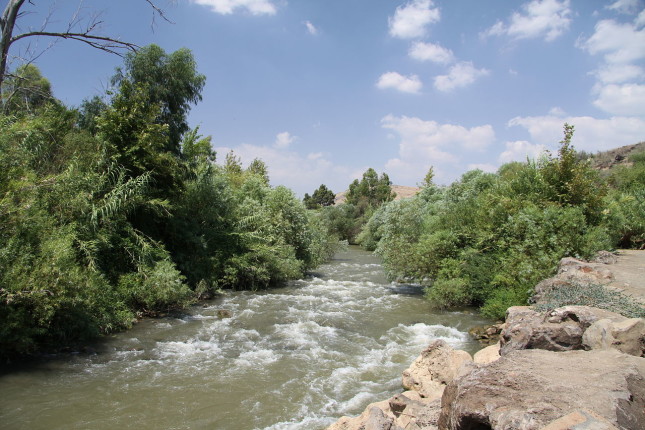
“Action is needed today,” said EcoPeace Middle East’s Palestinian Co-Director Nada Majdalani. EcoPeace’s Palestinian and Israeli Co-Directors spoke at a recent session of the United Nations Security Council that focused on potential solutions to the decades-old Palestinian-Israeli crisis. They emphasized the importance of cooperation over shared water resources to help address human health and national, regional, and global security concerns. While EcoPeace has been working to foster cooperation over water for more than 25 years, as a way to build peace in the Middle East, this was the first time the trilateral organization briefed the Security Council.
-
Water as a Tool for Resilience in Times of Crisis
›
Water serves as a tool for resilience only when access to it is consistent and the system for making it consistent is in place, said David De Armey, Director of International Partnerships for Water for Good, an international NGO. He spoke at a recent Wilson Center event, “Water as a Tool for Resilience in Times of Crisis,” the second event in a three-part series, Water Security for a Resilient World, sponsored by the Wilson Center, Winrock International, the Sustainable Water Partnership, and USAID. Water for Good monitors 80 percent of wells across seven provinces in Central African Republic (CAR), he said. By keeping the water infrastructure working, the nonprofit creates a stable environment within an unstable country. “Thus,” he said, “we see reliability and services as a tool for resilience.”
-
New Report Addresses Climate and Fragility Risks in the Lake Chad Region
›May 15, 2019 // By Truett Sparkman
Contrary to popular belief, Lake Chad is not shrinking, according to Shoring up Stability: Addressing Climate and Fragility Risks in the Lake Chad Region, a new report from adelphi. This finding has profound implications for how the governments of countries bordering Lake Chad (Nigeria, Niger, Chad, and Cameroon) as well as the international community should address the conflict trap in which the people of the region are caught. “Supporting the people of the basin,” write the authors, “is not a function of saving Lake Chad from desiccation.”
-
Better Water Security Translates into Better Food Security
›
“Food production is the largest consumer of water and also represents the largest unknown factor of future water use as the world’s population continues to balloon, and we face increasing weather-related shocks and stresses,” said Laura Schulz, Acting Deputy Assistant Administrator in USAID’s Bureau for Economic Growth, Education and Environment. She spoke at “Feeding a Thirsty World: Harnessing the Connections Between Food and Water Security,” an event sponsored by the Wilson Center, Winrock International, the Sustainable Water Partnership, and USAID. Currently about 70 percent of global water goes to agriculture, a number that is projected to rise “as high as 92 percent,” said Rodney Ferguson, the President and CEO of Winrock International.
-
Ambassador Marcia Bernicat on the U.S. Global Water Strategy
› The overarching goal of the U.S. Global Water Strategy is to create a more water secure world, said Ambassador Marcia Bernicat, Principal Deputy Assistant Secretary for the Bureau of Oceans, and International Environmental and Scientific Affairs at the U.S. Department of State at a recent Wilson Center event. “Simply put,” she said, “a world where people have the water they need, where they need it, when they need it, without living in fear of floods or droughts.”
The overarching goal of the U.S. Global Water Strategy is to create a more water secure world, said Ambassador Marcia Bernicat, Principal Deputy Assistant Secretary for the Bureau of Oceans, and International Environmental and Scientific Affairs at the U.S. Department of State at a recent Wilson Center event. “Simply put,” she said, “a world where people have the water they need, where they need it, when they need it, without living in fear of floods or droughts.” -
A Look Downstream: Thoughtful Water Infrastructure Planning May Yield Economies of Flexibility
› Three big trends are coming, said Ken Conca, Professor at American University’s School for International Service at a recent Wilson Center event that explored the future of water. “We’ll be storing a lot more water,” he said. “We’ll be recycling a lot more water. And we’ll be thinking much more systematically and foundationally about flood risk.”
Three big trends are coming, said Ken Conca, Professor at American University’s School for International Service at a recent Wilson Center event that explored the future of water. “We’ll be storing a lot more water,” he said. “We’ll be recycling a lot more water. And we’ll be thinking much more systematically and foundationally about flood risk.” -
Tapping the Power in China’s Municipal Sludge
›
In September 2018, the Jinghu District People’s Court in Wuhu, Anhui Province sentenced 12 people from the Pol Shin Fastener Company between four months and six years in prison for committing serious interprovincial environmental crimes in Jiangsu and Anhui in 2016 and 2017. The court also fined the automobile hardware manufacturer 10 million yuan ($1.48 million). The crime? Dispatching ships and trucks to illegally dump 2500+ metric tons of highly acidic pickling sludge from steel production. Sludge—semi-solid waste emissions from industries and municipal water treatment plants—is yet another tough water and solid waste pollution challenge China faces.
-
Water, Conflict, and Peacebuilding: A New Animated Short from the Wilson Center and USAID
›
Water brings us together. It is essential to the health of individuals, the vitality of communities, and the stability of nations. A new animated short from the Wilson Center and USAID’s Office of Conflict Management and Mitigation celebrates how working together to ensure safe and sufficient water supplies not only increases the resilience of communities, but also helps build peace in war-torn nations.
Showing posts from category water.


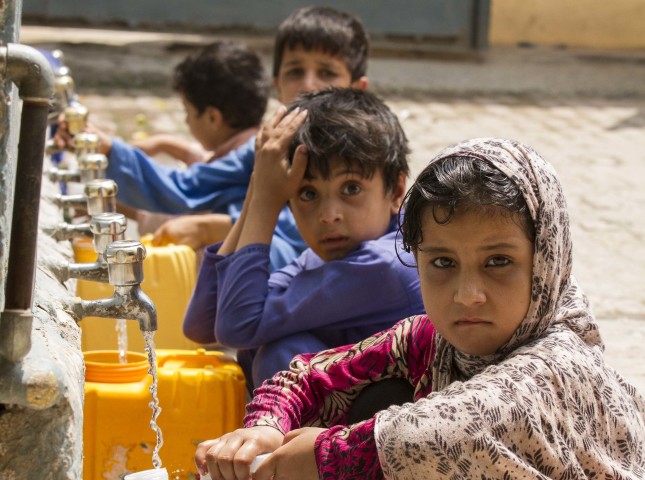
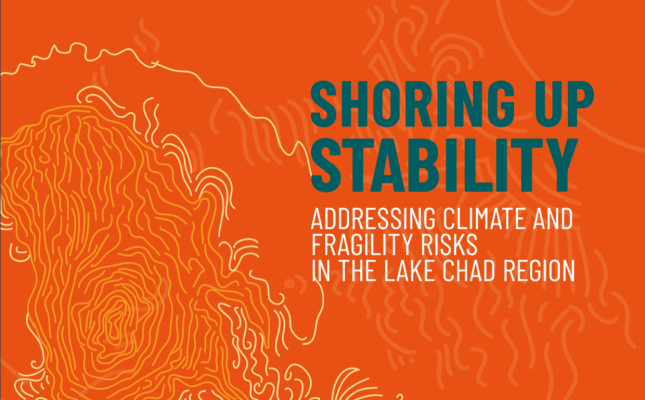
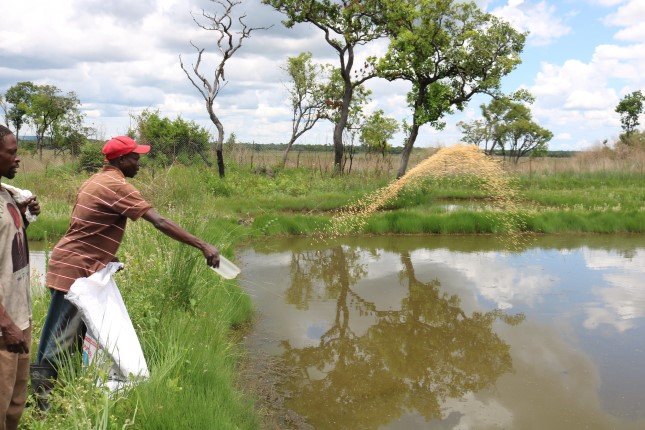
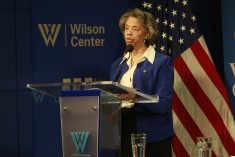 The overarching goal of the U.S. Global Water Strategy is to create a more water secure world, said Ambassador Marcia Bernicat, Principal Deputy Assistant Secretary for the Bureau of Oceans, and International Environmental and Scientific Affairs at the U.S. Department of State at a recent Wilson Center
The overarching goal of the U.S. Global Water Strategy is to create a more water secure world, said Ambassador Marcia Bernicat, Principal Deputy Assistant Secretary for the Bureau of Oceans, and International Environmental and Scientific Affairs at the U.S. Department of State at a recent Wilson Center  Three big trends are coming, said Ken Conca, Professor at American University’s School for International Service at a recent Wilson Center
Three big trends are coming, said Ken Conca, Professor at American University’s School for International Service at a recent Wilson Center 



